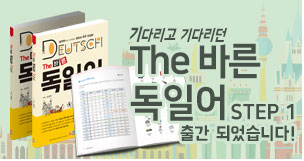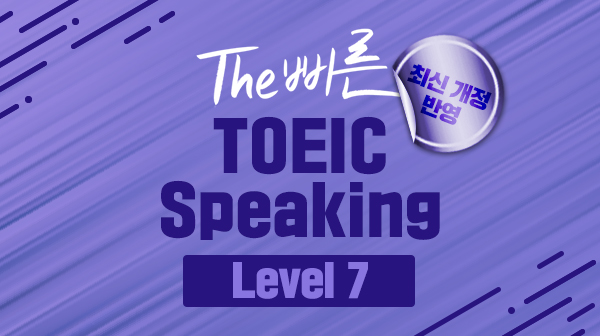-
- ņśüņ¢┤
- Sel TEST
- English Hub
- Speaking TIP
- Culture Story
- Business Writing
- ņØ╝ļ│Ėņ¢┤
- Sel TEST
- Japan Hub
- ņżæĻĄŁņ¢┤
- Sel TEST
- Chinese Hub
- ņżæĻĄŁ ņĄ£ņŗĀ ļē┤ņŖż
- The China+
- ĻĘĖļ”¼ņŖżņ¢┤
- ļäżĒīöņ¢┤
- ļÅģņØ╝ņ¢┤
- ļØ╝ņśżņŖżņ¢┤
- ļ¤¼ņŗ£ņĢäņ¢┤
- ļŻ©ļ¦łļŗłņĢäņ¢┤
- ļ¬ĮĻ│©ņ¢┤
- ļ»Ėņ¢Ćļ¦łņ¢┤
- ļ¦ÉļĀłņØ┤ņ¢┤
- ļ▓ĀĒŖĖļé©ņ¢┤
- ļ▒ģĻ│©ņ¢┤
- ļČłĻ░Ćļ”¼ņĢäņ¢┤
- ņŖżņÖĆĒ×Éļ”¼ņ¢┤
- ņŖżĒÄśņØĖņ¢┤
- ņŗ▒ĒĢĀļØ╝ņ¢┤
- ņĢäļ׏ņ¢┤
- ņĢäļź┤ļ®öļŗłņĢäņ¢┤
- ņĢäņĀ£ļź┤ļ░öņØ┤ņ×öņ¢┤
- ņĢöĒĢśļØ╝ņ¢┤
- ņÜ░ļź┤ļæÉņ¢┤
- ņÜ░ņ”łļ░▒ņ¢┤
- ņÜ░Ēü¼ļØ╝ņØ┤ļéśņ¢┤
- ņØ┤ļ×Ćņ¢┤
- ņØ┤Ēāłļ”¼ņĢäņ¢┤
- ņØĖļÅäļäżņŗ£ņĢäņ¢┤
- ņ▓┤ņĮöņ¢┤
- ņ║äļ│┤ļööņĢäņ¢┤
- Ēéżļź┤ĻĖ░ņŖżņ¢┤
- ņ╣┤ņ×ÉĒØÉņ¢┤
- Ēā£ĻĄŁņ¢┤
- Ēä░Ēéżņ¢┤
- Ēł¼ļź┤Ēü¼ļ¦żļŗłņŖżĒāäņ¢┤
- Ēżļź┤Ēł¼Ļ░łņ¢┤
- ĒÅ┤ļ×Ćļō£ņ¢┤
- Ēöäļ×æņŖżņ¢┤
- ĒŚØĻ░Ćļ”¼ņ¢┤
- Ē×īļööņ¢┤
- ļ©╝ļéśļØ╝ ņØ┤ņøāļéśļØ╝
-

Culture Story
Ļ▓īņŗ£ĻĖĆ ņłś | 419
Ļ┤ĆļĀ© Ļ░Ģņóī ņłś | 174
- How Facebook has changed English
- ļ╣äļŗł | 2019.03.04 11:33
-
How Facebook has changed English
What are your feelings about social media?
How does social media affect your life?
Social media has transformed the way we talk with each other. For example telling others about our thoughts, planning a fun night out, or showing our photos. For these, most people use social media. Has this interaction changed the way we speak and write English?
Speed
Social media has meant we can communicate with a large number of people. And we can do this in a way that was only possible in our local circles in our own country before. Now we can keep friendships simultaneously over long distances.
The result? We must now communicate in a concise way.
For example: LOL! OMG! TTYL!
The use of acronyms (acronyms are letters that replace a short sentence) are now common replacements for whole sentences. LOL (laugh out loud), OMG (Oh my God), TTYL (talk to you later) are just a few that demonstrate how social media speeds things up.
Emoticons (keyboard facial expression such as a smile or frown. Examples are:( and :) ) are used to convey what the user is feeling without having to write it. Some may say this is lazy writing. But social media isnŌĆÖt about creative writing. It is a fast and easy way of communicating with others.
How has this changed our world?
Language is always changing. ItŌĆÖs naive to think that social media isnŌĆÖt changing the way we use English in day-to-day life.
Many words from social media and the Internet have become so common that theyŌĆÖve now become used in everyday talk. Here are a few words that have come from technology: blogosphere (where people write their stories online), troll (a negative person who goes around writing unkind things on social media and comments pages etc.) and buzzword (a popular word or phrase). Even some acronyms have become popular in everyday speaking, ŌĆślolŌĆÖ for example.
Another phenomenon weŌĆÖve seen is the new use of common words.
ŌĆśFriendedŌĆÖ and ŌĆśunfriendedŌĆÖ are two examples of words that have been given a new meaning due to their usage online. The word ŌĆśfriendŌĆÖ and ŌĆśbefriendŌĆÖ is from Old English from the 13th Century. But now it has a new use (the process of adding or removing someone from your circle of friends). ŌĆśLikeŌĆÖ and ŌĆśviralŌĆÖ are other popular examples of words that have had their meaning changed by social media.
There are even examples of online brands becoming so powerful that these words are now in the English dictionary. ŌĆśGoogleŌĆÖ is the worldŌĆÖs most famous search engine. Now we say, ŌĆśGoogle itŌĆÖ
Just think, 15 years ago, if someone youŌĆÖd just met asked you to ŌĆ£be their friendŌĆØ or ŌĆ£InstagramŌĆØ a photo of their lunch you might have thought they were crazy.
Try to guess the meaning of the words in bold and match them with their closest meaning from the choices in the right. Some of the answers are very close and have similar meaning. The meaning of these words is how they are used in the reading. Some of these words have different meanings in the dictionary depending on how they are used.
The answers are below the table.
transformed
A
1
Communication between things/people
interaction
B
2
Exact. A lot of information reduced to a small amount that is easy to understand
simultaneously
C
3
An unusual/strange event.
concise
D
4
To communicate a message
demonstrate
E
5
To completely/totally change something
convey
F
6
Simple, foolish, too trusting
naive
G
7
To show, an example
phenomenon
H
8
Two or more things happening at the same time
A=5, B=1, C=8, D=2, E=7, F=4, G=6, H=3
Some example sentences using the new words or phrases from the meaning of how they are used in the reading to help you understand better.
The plastic surgery has transformed her appearance.
During the next week there will be a lot of interaction between seniors and freshmen.
The World Cup final will be simultaneously shown in television and the Internet.
If you write too much it is confusing. Make your writing concise.
Today in my presentation I will demonstrate how to get a good score.
We wish to convey a message that we are sad to hear that your father died.
He seems nice but donŌĆÖt be na├»ve. He might have a hidden plan.
Korean singer Psy is a phenomenon.
Some questions using the new words/phrases. Try to use the words/phrases in your answer.
How has social media transformed your language? How do you feel about the transformation (if you think it has transformed)?
Do you enjoy interacting on social media? What do you like to do?
Do you think that we can have too many simultaneous relationships?
How do you feel about concise forms of communication such as LOL?
Do you think demonstrating your feelings and thoughts on social media is good?
If you love someone what is the best way to convey your message?
In what ways have you been naïve in the past?
In your lifetime what phenomenal events have you heard of or seen?
- 546.mp3 (1.8MB) (1,105)
- ņČöņ▓£Ļ░Ģņóī























